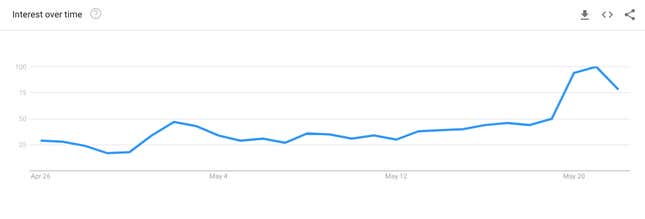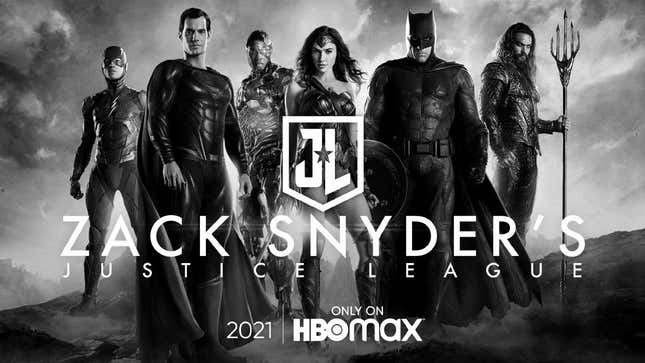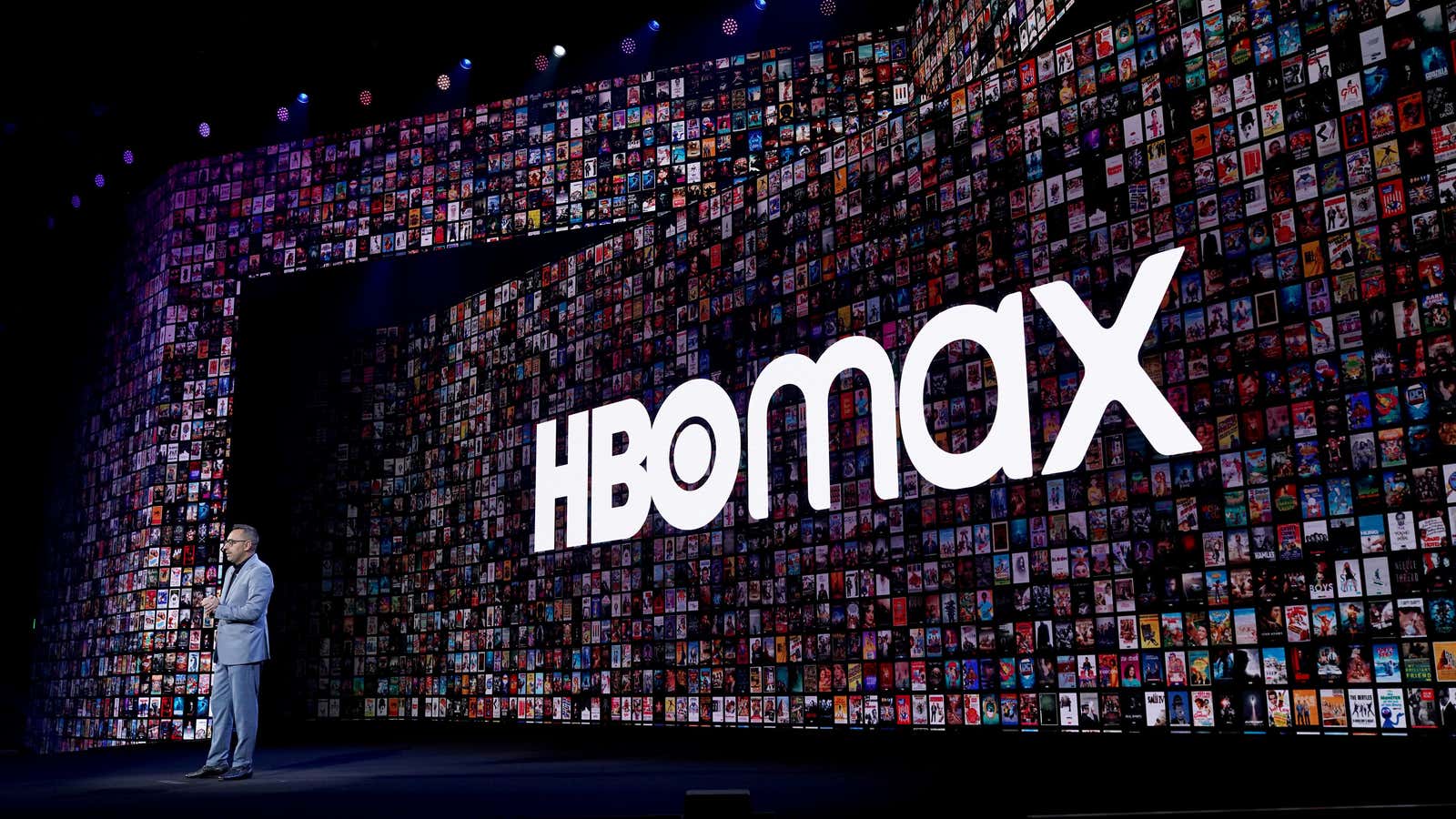HBO Max, the new streaming service from WarnerMedia, launches May 27. Not only will it catapult the entertainment conglomerate into its streaming future, but it will also mark the beginning of a new era for the prestige TV brand from which it takes its name: HBO.
WarnerMedia is marketing the service with the tagline “Where HBO meets so much more.” The phrase captures the company’s overall strategy while simultaneously explaining what’s on the service. Now owned by AT&T with a mandate to grow, WarnerMedia hopes to leverage the globally beloved HBO name in order to attract new subscribers to the company’s broader cultural tent, which includes Warner Bros. movies, CNN, TNT, and a number of new series made specifically for the service, called “Max Originals.”
In short, WarnerMedia is using HBO to sell a whole bunch of other content in an effort to compete with the likes of Netflix and Disney.
So far, the buzziest piece of content WarnerMedia has snagged for HBO Max is the mythical “Snyder Cut” of the superhero film Justice League. Director Zack Snyder was forced to leave production on the 2017 film due to the death of his daughter, leaving the studio to scrap together a final product, which disappointed at the box office. Immediately, fans all over the world took to social media to demand Warner Bros. #ReleaseTheSnyderCut—the version of the film its original filmmaker intended.
Three years later, WarnerMedia is giving into the demand, hoping it serves as a selling point for HBO Max. The Snyder Cut won’t be available until 2021, but it’s already creating a palpable buzz around the product that it was severely lacking. Google search interest in HBO Max spiked on May 19, when the news was announced:

“Since I got here 14 months ago, the chant to #ReleaseTheSnyderCut has been a daily drumbeat in our offices and inboxes. Well, the fans have asked, and we are thrilled to finally deliver. At the end of the day, it really is all about them,” Bob Greenblatt, WarnerMedia’s chairman, said in a statement.
The release of a fan-driven, alternate version of a mass-market superhero movie is the very antithesis of HBO’s deliberate, curatorial approach to programming. HBO is being forced to go “masstige“—offering prestige for the masses, Felix Gillette pointed out in Bloomberg.
So where does HBO fit within a platform—one that has taken its name—that boasts something like the Justice League Snyder Cut as a main attraction? Could HBO, at some point, be forced to even further assimilate into WarnerMedia’s grand streaming strategy?
AT&T may decide it needs to use HBO to continue building out its content ecosystem. Disney has had enormous success implementing a content feedback loop, wherein its movies serve as advertising for its streaming shows, which in turn help market its movies and theme parks, which sell merchandise that make consumers even more devoted to the content. Through WarnerMedia’s franchises (the DC Comics universe, The Lord of the Rings, Harry Potter, to name only a few), AT&T has the library to attempt something similar. Justice League wouldn’t be a bad place to start.
The telecommunications giant could use the service’s “Max Originals” to do that work, and thus keep HBO’s content as separate as possible. But to consumers, that distinction may make less and less of a difference when all this content is presented in the same app.
In the run-up to HBO Max’s launch, the chief criticism of WarnerMedia’s strategy is that its branding is confusing, with products called HBO Go, HBO Now, and HBO Max. Media reporters might know the difference between them but many consumers don’t. To explain briefly:
- HBO Go is the streaming version of HBO given to consumers who subscribe to HBO through their cable TV provider.
- HBO Now is a standalone streaming HBO app available to anyone.
- HBO Max is WarnerMedia’s new streaming service that includes HBO, among many other things, and will be available to most existing HBO subscribers at no additional cost. Beyond being unsure of what precise content the service offers, consumers may not understand that, despite using the HBO name, the network is actually something else entirely.

Likewise, the concept of a diluted HBO brand won’t mean much to consumers—until it starts to affect the network’s content. If, in the future, HBO is an indistinguishable component of HBO Max with little identity of its own, will it still be a draw for Hollywood’s top talent? If its reputation as a prestige, curatorial company is diminished, how does it win bidding wars with the likes of Netflix, Disney, and Apple, when all of those companies can reasonably argue they’d draw more eyeballs to a project? (WarnerMedia executives say they are hoping for 50 million HBO Max subscribers by 2025. Disney already has that many, while Netflix has 180 million.)
HBO Max is something of a catch-22: If the service is successful and becomes profitable, global streaming entertainment service to rival Netflix and Disney+, then that will inevitably dilute the HBO name even more. Or, at least, that will force it to mean something else. HBO will be more associated with Justice League, and whatever else is most popular on the service, than with its own shows.
That could, ironically, return HBO back to its roots, when it predominantly showed Hollywood movies, long before it made original content. Blockbuster movies like Justice League still drive a lot of the network’s viewership, while some great prestige dramas don’t actually get many viewers at all.
But when future consumers hear “HBO,” they won’t think The Sopranos and Veep, they’ll think The Lord of the Rings or Gossip Girl. AT&T would be happy with that, but the HBO executives who built the brand into the prestige power it is today probably wouldn’t be. (Many of them, including former CEO Richard Plepler, left the company after AT&T acquired it. Plepler is now producing content for Apple.)
In the near term, HBO can probably keep on being the HBO its customers love, bringing in the industry’s biggest names, winning Emmys, and dominating water-cooler conversations in a way few other networks can. But long term, the HBO we know today is at risk of fading into the abyss of streaming.
